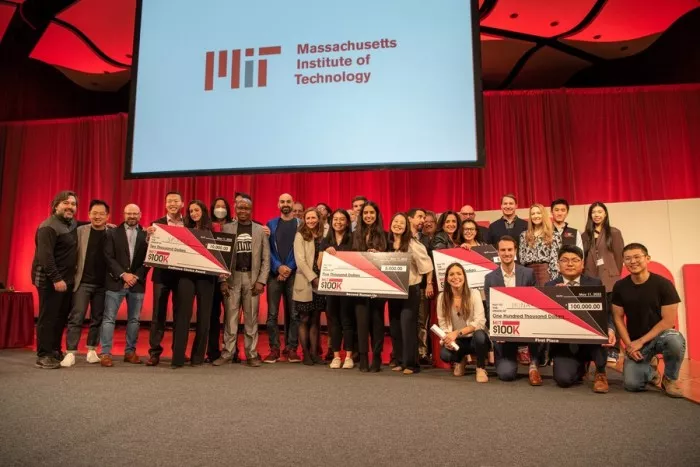Winners of this year's MIT $100k entrepreneurship competition are commercializing a new water desalination technology Nona desalination says it has developed a device that can produce enough drinking water for 10 people at half the cost and 1 / 10 the power of other desalination equipment. The device is powered by a small solar panel, roughly the size of a bottle of water.

"Our mission is to make portable desalination sustainable and easy," Bruce Crawford, CEO of Nona and a candidate for an MBA at MIT, said in a winning speech. He introduced it to audiences in the kresgee auditorium and online.
Traditional desalination methods rely on a power intensive process called reverse osmosis. In contrast, Nona's team uses technology developed by MIT's electronic research laboratory, which uses electricity to remove salt and bacteria from seawater.
"Because we can do all this at ultra-low pressure, we don't need high-pressure pumps (used in reverse osmosis), so we don't need a lot of electricity," said Crawford, who co founded the company with Massachusetts Institute of technology research scientist junghyo Yoon. "Our devices operate at less power than mobile phone chargers."
Citing issues such as tropical storms, drought and the infrastructure crisis in Flint, Michigan, the founders stressed that access to clean water is not just a problem for developing countries. In Houston, after the disastrous floods caused by Hurricane Harvey in 2017, some residents were advised not to drink tap water for several months.
The company has developed a small prototype that can produce clean drinking water. Nona will use the money she won to build more prototypes and give them to early customers.
The company plans to sell its first equipment to sailors before entering the field of emergency preparedness in the United States, which it estimates is a $5 billion industry. From there, it hopes to expand its scale globally to help disaster relief. The technology may also be used in hydrogen production, oil and gas separation and so on.
MIT $100k is the largest entrepreneurship competition at MIT. It began in 1989 and was organized by students with the support of the MIT Martin trust entrepreneurship center and the MIT Sloan School of management. Each team must include at least one MIT student.
The $25000 bonus for second place is provided by inclusive Ly access, the company helps people and organizations create a more inclusive environment. The company uses conversational artificial intelligence and natural language processing to detect biased words and phrases and measure the level of bias or inclusiveness in communication.
"We are here to create a world where everyone feels invited to participate in dialogue," said MBA candidate Yeti khim, who co founded the company with MBA candidates Joyce Chen and Priya Bhasin.
Inclusive. Ly can scan a series of communications and make suggestions for improvement. The algorithm can detect discrimination, micro discrimination and condescending attitude. The founders say it analyzes language in a more detailed way than tools such as Grammarly. The company is currently developing a plug-in for web browsers and hopes to work with large enterprise customers later this year. It will apply to internal communications such as e-mail and external communications such as sales and marketing materials.
Inclusive. Ly plans to sell to enterprises in subscription mode and points out that diversity and inclusiveness are becoming a higher priority for many companies. Research cited by khim shows that lack of inclusiveness hinders employee productivity, retention and recruitment. "We can all use a little help to create the most inclusive self," khim said
In third place is RTM microfluidic technology, which is establishing family tests for a range of diseases, including streptococcal laryngitis, tuberculosis and mononucleosis. The test can detect a range of bacterial and viral pathogens in saliva and provide accurate test results in less than 30 minutes.
The audience choice award was won by sparkle, which developed a molecular dye technology that can illuminate tumors and make them easier to remove during surgery.
This year's MIT $100k entrepreneurship competition was the culmination of a process that began in March last year, when 60 teams applied for the program. Among these teams, 20 semi finalists received additional guidance and support, and then 8 finalists were selected to participate in the competition.
Other finalists are:
Astrahl, which develops high-resolution and affordable X-ray systems by integrating Nanotechnology with scintillators;
Encreto therapeutics, which is finding appetite drugs for obese patients;
Iridence, which has patented a biomaterial to replace minerals such as mica as a way to make the beauty industry more sustainable;
Mantel, which is developing a liquid material to remove carbon more effectively at high temperatures.